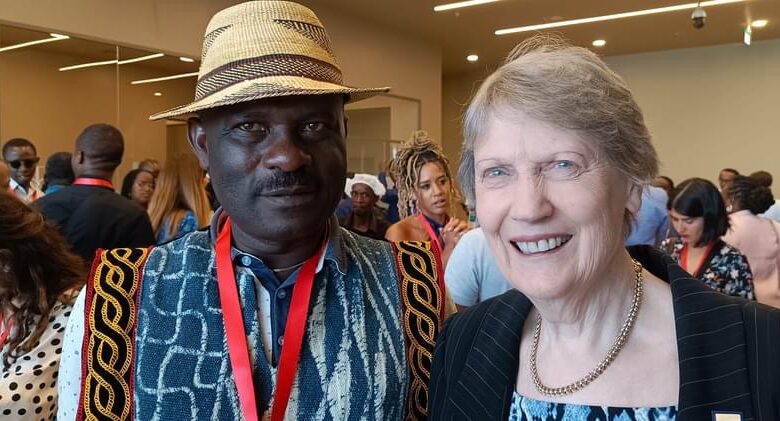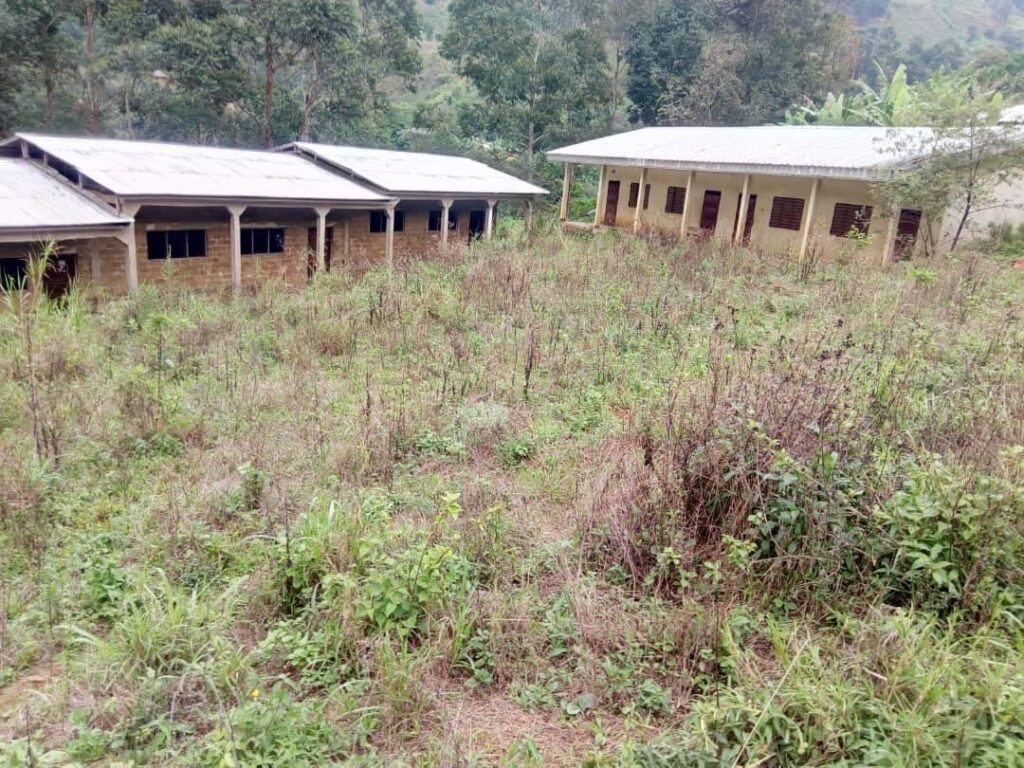The Cameroonian Journalist Raising Funds To Bring Dropouts Back To School
Disturbed by the rising number of school dropouts in his community due to a seven-year conflict, a radio host in Cameroon has launched a funding drive to get 200 school dropouts to return to school this upcoming academic year.

Sitting at his breakfast table in his home in Bamenda, Ngwain Colbert picked up his bread and directed it towards his mouth. Recent news about the community where he grew up caused the journalist to wonder if the people there had breakfast like he was about to.
It started a chain of thought that resulted in a decision to do something about the big issue facing his home community, getting children back into school.
His community Muteff in Boyo division of the Northwest region of Cameroon has been going through a simmering conflict for seven years.
After the war began in earnest, in their pursuit of independence for the English-speaking regions of Cameroon, separatist-terrorists called a boycott of government-run schools in 2017.
For most, education has still not resumed.
“I started thinking of the fact that the passport to such a future is through education, but children in my community have been deprived of such opportunities,” he explains, taking in a deep breath.
In Muteff Village, around 60 per cent of the 3000 inhabitants are young. It is one of those most impacted by the crisis.
As a result of the crisis there are hundreds of young dropouts from school just in this one rural community.
Change
Colbert, a radio host and digital space activist, works for Ndefcam Radio in Bamenda, Northwest region of Cameroon.
After five years of watching children roam around streets in and out of the community, without going to school, Colbert says the parents and school dropouts now want a change.

“With gradual education and sensitization campaigns, things are beginning to change. Those who dropped out are now ready to either go back to school in the village or out there. Some of them want to learn a trade”, he said.
He started by identifying community influencers to begin mobilising and documenting the names of all the dropouts as well as those who just had the Common Entrance Examinations and First School Leaving Certificates into the first year of secondary education.
Colbert says although these children want to go back to school, their families lack financial and material resources due to the crisis.
The project targets “Struggling Undisplaced Persons” and Internally Displaced People in and out of Boyo.
“Children orphaned by the ongoing crisis, teen mothers, and victims of rape as another component. We will be assisting these teenage mothers to establish birth certificates for their children and as well as facilitate legal adoption for children born of war [by separatist fighters] in that community,” he said.
Local authorities and persons of goodwill have started responding to his call, as he has so far raised over $590 through local resource mobilisation and on his Facebook platform, “@TheColbertFactor”.
Delighted
One of the community members and former president of the Muteff community development association, Fuchi Emmanuel, said he was elated through this project. They see that most of their children will be going back to school in the near future.
“I am really delighted with all the euphoria around the fund raiser and the possibilities that schools will take off in our community which is what everyone should clamour for,” said Emmanuel.
Despite records of past attacks on schools and pupils by separatist fighters in the division, Emmanuel is hopeful more than 200 children will go back to class.
The number of children out of education has been increased by the government’s response.
While the terrorist boycott was declared against government schools, over time separatists had allowed some smaller privately-run schools to continue to operate. As word spread they grew in size and number as people discovered some schools were functioning.
Last year, in order to encourage people to send their children back to the government schools, the government forced more than 26 private schools in Boyo division to close. They said the action was because the schools were “under the supervision of separatist fighters”.
About 54 per cent of schools are still closed in the North-West and South-West, says the UN Office for the Coordination of Humanitarian Affairs in its March report.
“Of the 6,515 schools expected to open during the 2022/2023 academic year, only 3,013 were operational with insecurity as the primary reason. Many children in the affected areas do not have safe access to education, except for non-formal education provided by some,” it said.
Although so far Colbert’s programme has been aimed at schools in rural villages, there’s still hope for schools in urban areas in the Northwest region. Colbert has also set his sights on enrolling these children for the 2023/2024 academic year.
Summary not available.
Support Our Journalism
There are millions of ordinary people affected by conflict in Africa whose stories are missing in the mainstream media. HumAngle is determined to tell those challenging and under-reported stories, hoping that the people impacted by these conflicts will find the safety and security they deserve.
To ensure that we continue to provide public service coverage, we have a small favour to ask you. We want you to be part of our journalistic endeavour by contributing a token to us.
Your donation will further promote a robust, free, and independent media.
Donate HereStay Closer To The Stories That Matter




